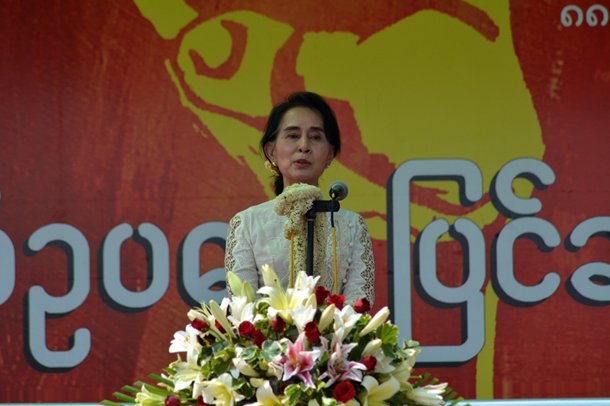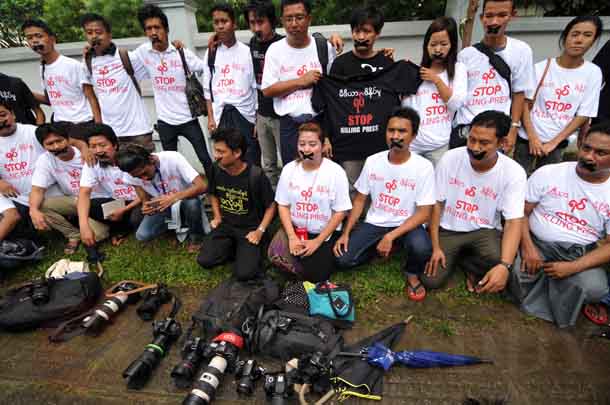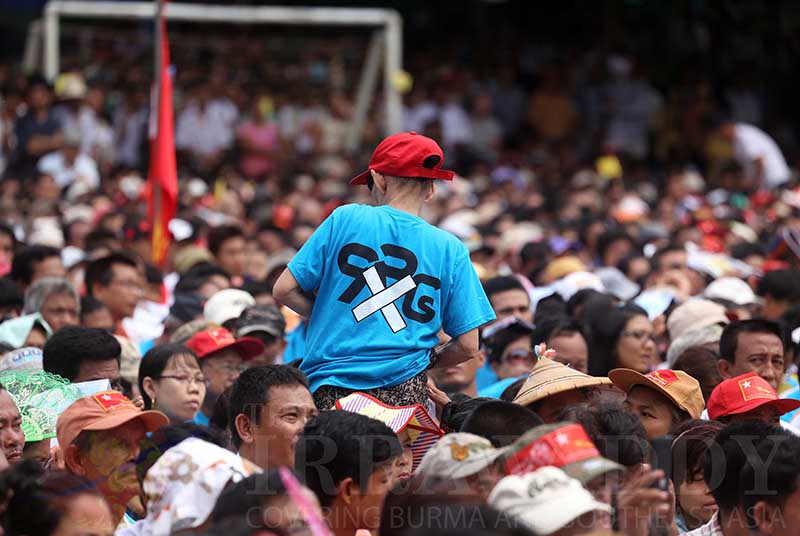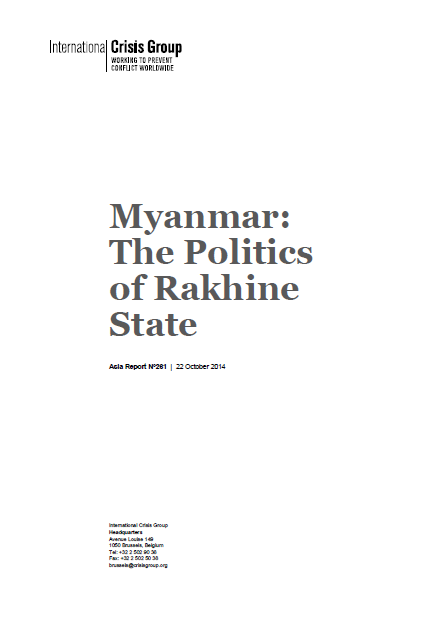Posts Tagged ‘2015 Elections’ (120 found)
Myanmar: The Politics of Rakhine State
The situation in Rakhine State contains a toxic mixture of historical centre-periphery tensions, serious intercommunal and inter-religious conflict with minority Muslim communities, and extreme poverty and under-development. This led to major violence in 2012 and further sporadic outbreaks since then. The political temperature is high, and likely to increase as Myanmar moves closer to national elections at the end of 2015. It represents a significant threat to the overall success of the transition, and has severely damaged the reputation of the government when it most needs international support and investment. Any policy approach must start from the recognition that there will be no easy fixes or quick solutions. The problems faced by Rakhine State are rooted in decades of armed violence, authoritarian rule and state-society conflict. This crisis has affected the whole of the state and all communities within it. It requires a sustained and multi-pronged response, as well as critical humanitarian and protection interventions in the interim […]
• • •Media Release – Myanmar: The Politics of Rakhine State
The highly volatile situation in Myanmar’s Rakhine State adds dangerously to the country’s political and religious tensions. Long-term, incremental solutions are critical for the future of Rakhine State and the country as a whole […]
• • •Dispatches: A Scathing Verdict on Burma’s Stalled Reforms
A remarkable set of meetings took place this week in Rangoon, with more than 650 representatives from Burmese civil society groups gathering to discuss the status of the country’s reform process […]
• • •Canadian Burma Ethnic Nationalities Organization Founded at the 2nd Burma Ethnic Nationalities Conference Canada
The second Burma Ethnic Nationalities Conference Canada was successfully held on 11-12 October 2014 in Vancouver, Canada. The conference was attended by representatives and members of Burma ethnic communities from across Canada […]
• • •Dispatches: What Burma’s Census Missed
The preliminary results of Burma’s first nationwide census since 1983 were released in Rangoon last Saturday, providing an answer to the vexing question of the actual population, estimates of which varied between 44 to 59 million for a decade. The new tally (minus some low-population areas of northern Karen State and Kachin State not included because of security concerns) is 51.4 million […]
• • •Political Opposition in Burma Must Ignore Distractions and Focus on Policy
 The main opposition party in Burma, the National League for Democracy (NLD), said last week that almost 5 million people signed the petition calling for constitutional reform that did the rounds from 27 May to 19 July. The petition pushed for the removal of the Burma Army’s veto on constitutional change that they have by virtue of Article 436 of the Burma Constitution. This campaign has been widely praised as a shrewd tactical move, because it would in theory unlock the door to amendments of any offending articles of the Burma Constitution that undermine democratic values and infringe upon the fundamental rights of the people. Most notably – though by no means exclusively, as the NLD and others are at pains to stress – amendment of Article 436 will in turn enable amendment of Article 59(f), which in practice bars Daw Aung San Suu Kyi running for President in the 2015 elections.
The main opposition party in Burma, the National League for Democracy (NLD), said last week that almost 5 million people signed the petition calling for constitutional reform that did the rounds from 27 May to 19 July. The petition pushed for the removal of the Burma Army’s veto on constitutional change that they have by virtue of Article 436 of the Burma Constitution. This campaign has been widely praised as a shrewd tactical move, because it would in theory unlock the door to amendments of any offending articles of the Burma Constitution that undermine democratic values and infringe upon the fundamental rights of the people. Most notably – though by no means exclusively, as the NLD and others are at pains to stress – amendment of Article 436 will in turn enable amendment of Article 59(f), which in practice bars Daw Aung San Suu Kyi running for President in the 2015 elections.
While such a public initiative is to be applauded, and the weight of support for the petition is to be welcomed, the political opposition in Burma must not allow itself to be distracted by such diversionary machinations on the part of the Burma Government and the ruling Union Solidarity and Development Party (USDP). The NLD is right that constitutional reform is essential to the establishment of genuine democracy in Burma. However, it is also time for the political opposition to test the limited democratic space that now exists in Burma, and time to start outlining a viable policy platform for government. The burden rests with the NLD and other democratic opposition parties to engineer a seismic cultural and political shift: away from politics traditionally centred on personalities and fear, and towards politics based on actual policies that will resolve people’s grievances and promote and protect their political, economic, social and cultural rights.
• • •Burma/US: Kerry Should Press Rights Concerns
(New York) – US Secretary of State John Kerry should press the Burmese government during his upcoming visit to reverse Burma’s deteriorating rights situation, Human Rights Watch said today. Kerry is scheduled to visit Burma from August 8 to 10, 2014, to attend meetings of the Association of Southeast Asian Nations (ASEAN) and the ASEAN Regional Forum (ARF) […]
• • •A Return to the Bad Old Days for Freedom of Expression
 In a scarcely believable and punishingly harsh act of repression, four journalists and the CEO of Unity journal were sentenced by a Magwe Region court on 10 July to ten years imprisonment with hard labor for reporting on a story on a chemical weapons factory, giving a damming indictment of press freedom in Burma today. This occurred just days after President Thein Sein described Burma as “one of the freest in Southeast Asia” due to media reforms.
In a scarcely believable and punishingly harsh act of repression, four journalists and the CEO of Unity journal were sentenced by a Magwe Region court on 10 July to ten years imprisonment with hard labor for reporting on a story on a chemical weapons factory, giving a damming indictment of press freedom in Burma today. This occurred just days after President Thein Sein described Burma as “one of the freest in Southeast Asia” due to media reforms.
In January 2014, Unity journal published an investigative report on a chemical weapons factory in Magwe Region, central Burma, with accounts from factory workers, local villagers and photos of the site. While the Burma government eventually admitted it is a ‘standard ordnance factory’ that produces ordinary military equipment, an analysis of the images by the Center for Nonproliferation Studies concludes that there is strong evidence that this isn’t just a normal arms factory, and is consistent with chemical weapons factories in other places, such as North Korea. It is ironic that the journalists who published a story on chemical weapons are jailed for ten years under the State Secrets Act, while the Burma government denies it is making chemical weapons. Related to this, a point that has been overlooked slightly over the past week is that Burma must implement the measures of the Chemical Weapons Convention that it signed in 1993 and thus clear up the issue of whether Burma does have the capability to manufacture such equipment, as the Unity journalists reported and are now in prison for. […]
• • •Burma Must Amend the 2008 Constitution for the Reform to be Genuinely Democratic
 The National League for Democracy (NLD) and its leader Daw Aung San Suu Kyi, have faced intimidation from Burma’s electoral commission in recent weeks as the campaign to amend Burma’s 2008 Constitution continues to draw strong support throughout the country. As the public rallies behind the campaign, Burma’s ruling Union Solidarity and Development Party (USDP) have accused the campaign leaders of sowing public unrest and disorder.
The National League for Democracy (NLD) and its leader Daw Aung San Suu Kyi, have faced intimidation from Burma’s electoral commission in recent weeks as the campaign to amend Burma’s 2008 Constitution continues to draw strong support throughout the country. As the public rallies behind the campaign, Burma’s ruling Union Solidarity and Development Party (USDP) have accused the campaign leaders of sowing public unrest and disorder.
Last month, Daw Aung San Suu Kyi spoke to a crowd of over 20,000 supporters in Mandalay, calling on the military to forgo their fear of constitutional amendment in support of democratic reform. According to a recent statement from Human Rights Watch, the Union Electoral Commission (UEC) subsequently warned the NLD leader that such comments are illegal and unconstitutional, and could jeopardize her party’s re-registration ahead of by-elections in 2014. The NLD has responded to the UEC’s warning as inappropriate, owing to the fact that political parties are allowed to stage rallies so long as they are in accordance with the law.
• • •United States Commission on International Religious Freedom’s 2014 Annual Report
Political reforms in Burma have not improved legal protections for religious freedom and have done little to curtail anti-Muslim violence, incitement and discrim¬ination, particularly targeting the Rohingya Muslim minority. Police failed to intervene effectively and the government has taken inadequate steps to address the underlying causes of sectarian violence or hold individ¬uals fully accountable. State-sponsored discrimination and state-condoned violence against Rohingya and Kaman ethnic Muslim minorities also continued, and ethnic minority Christians faced serious abuses during recent military incursions in Kachin state. Based on these systematic, egregious, ongoing violations, USCIRF continues to recommend that Burma be designated as a “country of particular concern,” or CPC, in 2014. The State Department has designated Burma a CPC since 1999 […]
• • •









 All posts
All posts